38 history of record labels and the music industry
The Rise and Fall of Record Labels - Claremont Colleges labels will no longer exist as a major part of the music industry. For nearly 60 years the recorded music industry has thrived. Since the invention of record players that allowed individuals to consume music on their own instead of going to live performances, the popularity of owning music has risen. Since the 1940's 10 Indie Music Labels You Should Know Fat Possum Records is a local giant in Oxford, Mississippi, with a long history of signing blues artists since 1992. ... From the fancy suit and tie major record label execs to the boutique independent record label owners, these music industry players will be taking a look at you as an artist as a potential "investment" for their company ...
What is a Record Label? | Exploration Record labels began emerging in the late 1800s when phonographs and phonorecords began to commercialize as technology allowed mass production. By the end of the century, three record companies had established themselves as the leaders of the industry: the Thomas A. Edison Company, Victor Talking Machine Company, and Columbia Phonograph Company.
History of record labels and the music industry
3. A brief history of the record industry | International Association ... Between 1898 and 1921 a single company, the Gramophone Co. (UK), is known to have made a total of 200,000 different recordings. The Company made recordings in most European, Asian and North African countries. The First World War naturally reduced sales, but in the 1920s records again became popular. The Music Industry in an Age of Digital Distribution | OpenMind In 1999 the global recorded music industry had experienced a period of growth that had lasted for almost a quarter of a century. Approximately one billion records were sold worldwide in 1974, and by the end of the century, the number of records sold was more than three times as high. The history of music distribution | Features | MN2S The first machine-printed music appeared around 1473 - about 20 years after the invention of the printing press - effectively setting in motion the beginnings of a music industry that was about more than just performers, events and instruments.
History of record labels and the music industry. History of Vinyl Records - Complete with a Timeline and Fun Facts 1948 - Columbia Record Company introduced the first 12 inch LP 33 1 ⁄ 3 rpm microgroove record album. 1949 - RCA Victor introduced a 7 inch 45 rpm record with a hole in the center. 1950s - 1960s - Shellac 78 rpm records stopped being produced in favor of vinyl records. 1962 - The first cassette tape was invented by Phillips. Music Publishers vs. Record Labels. The Difference? • Music publishing is much older than the record industry • Origins date back to the 15th Century, but developed formally from 18th Century • Initially based on the sale of sheet music for several centuries • Publishers licensed piano rolls in 19th Century • Publishers felt threatened by advent of sound recording in late 19th Century A Brief History of Recorded Music - CDROM2GO The history of recorded music, however, is much more recent. Before music was available in medium, the only way to consume it was to listen to it live. This changed in 1887 when Thomas Edison invented the phonograph. It consisted of a mechanical device using a grooved cylinder to produce music and a large horn to project it. The Independent Record Labels of the 1950's and 1960's It seems that it took a while for the more major labels to catch on to the commercial viability of rock and roll and other new types of music, and yet at the same time, independent record labels who already had a holding on this new market had found success. References . Jacobs, Pat. "Independent Record Labels of the 50's and 60's".
How the Big Four Record Labels Became the Big Three - The Balance Careers New record companies are created every day to cater to niche audiences and music styles. However, just three major record labels rule the global roost. EMI was once one of the big boys—but Universal Music purchased EMI in 2012. So, where once there were the Big Four, now there's just the Big Three. The Big Three The Big Three record labels are: How 'Race Records' Turned Black Music Into Big Business Not all race record labels were white-owned:Black Swan Records, for example, released about 150 race records, including recordings of black classical musicians. However, the label ran into ... How the Recording Industry Works (History, Jobs, & Functions) - Soundcharts Record labels are massive stakeholders in the music industry, and in America they're represented by the Recording Industry Association of America (RIAA). With that out of the way, let's get down to business: Brief history of sound recording In the early 20th century, sheet music publishers ran the music industry. The History of Record Labels In theory, the first "record label" was Edison Records, but really it was just referring to the cylinders and not a collective of musicians or anything like that. The second record label was Columbia Records. The oldest record label that is still in operation today!
A Brief History of the Record Industry, 1890-2005 - Digital Music News For about a hundred years (ending around 2005) , artists were able to get rich off of duplications — records, tapes and CDs. We still even use the word "copies," like when a platinum record ... Ten Books About the History of Record Labels - Dark Shift Despite not having much experience in the music industry, Ahmet Ertegun and Herb Abramson cofounded Atlantic Records--one of the most successful record labels in history. Anything for a Hit: An A&R Woman's Story of Surviving the Music Industry The book cover for former A&R executive Dorothy Carvello's memoir Anything For A Hit. Used under Fair Use. A Brief History Of Record Deals - Hypebot Early 1900s: The Advent of the Record Label. In 1904, one of the earliest record deals ever recorded, pun intended, came courtesy of Victor Talking-Machine Company, which produced, among other ... History of Record Labels and the Music Industry - Playlist Research The beginning of the recording industry is often thought of as Thomas Edison's patent on phonograph technology in the late 19th century. While rudimentary sound capturing experiments began in the early 1800s with tuning forks, these soundwaves were unable to be reproduced.
7 Major Record Labels & Some Of Their Notable Acts Atlantic Records is an essential label in the history of American music. Founded in 1947, they earned their cred launching jazz, R&B and soul by artists like Aretha Franklin, Ray Charles, Wilson Pickett and Otis Redding. Atlantic became a part of the Warner Music Group in 1967.
The 10 Largest Record Labels In The United States - Zippia Largest Record Labels Research Summary. The largest record label in the U.S. is Sony Music Entertainment, with a revenue of $9.12 billion and an market share of 20%.. As of 2021, the U.S. record label industry has a market size of $9.7 billion.. Over 102.4 million albums are sold in the U.S. each year.. The U.S. record label market is projected to grow at a CAGR of 4.27% through 2026.
The History Of Record Labels - HighVolMusic In the 1950s, independent record labels such as Sun Records and Chess Records began to gain popularity. The 1960s saw the rise of major record labels such as Motown and Atlantic Records. In the 1970s and 1980s, the music industry was dominated by a handful of major labels, such as Warner Bros. Records, EMI, and Sony Music.
The Record Label's Role in the Music Industry - The Balance Careers Major Labels . Major record labels offer deals to the world's most successful music artists. These record labels, such as Sony and Universal Music Group, own distribution networks that put the music of the artists they sign to exclusive contracts in the hands of the millions of consumers sometimes in a matter of days or even hours.
History of Record Labels and the Music Industry - Playlist Research 1890s. Competing technologies between discs and cylinders marked the first decade of recording as an industry. 1900s. Discs won the format battle over cylinders as Columbia and Victor began to set industry standards. 1910s. Early phonograph patents expired, opening the door for many new independent labels. 1920s.
History - Record Industry History The pressing plant was founded in 1958 by Casper and Wim Slinger, who were oil traders. The plant was named Artone, after their record label, manufacturing only 7" records at that time. In 1966 CBS bought a 50% share in Artone, and started a printing company that year to make their own sleeves too.
HISTORY OF RECORD LABELS AND THE MUSIC INDUSTRY - Tangent Sunset History of Record Labels and the Music Industry - Thomas Edison truly brought power to the people. He was the founder of the modern electrical world. Not only was he the founder of General Electric, which went on to become one of the biggest corporations of all time, his developments paved the way for the motion picture and music industries.
The Music Industry's Long History of Dividing Blacks and Jews The historical reality is that Jewish label owners and producers have played a tremendous role in the shaping of the music industry, and much of that role has been on the backs of black artists ...
Top 10 major Record Labels. A record label is a brand in the music ... The segment was formed in 2000 with primary focus being on electronic and pop music. It has signed artists such as Katy Perry, Ash Mundae, Kindrid Three, Aurora and The Echoing Green....
The History of Black-Owned Record Labels - JSTOR Daily Golden World, started by Ed Wingate and his business partner, Joanne Jackson Bratton, opened its doors in 1961. And House of Beauty, started by Carmen Murphy—who ran a recording studio in her beauty salon—and Johnnie Mae Matthews's Northern Records actually predate Motown, both starting about a year earlier.
The history of music distribution | Features | MN2S The first machine-printed music appeared around 1473 - about 20 years after the invention of the printing press - effectively setting in motion the beginnings of a music industry that was about more than just performers, events and instruments.
The Music Industry in an Age of Digital Distribution | OpenMind In 1999 the global recorded music industry had experienced a period of growth that had lasted for almost a quarter of a century. Approximately one billion records were sold worldwide in 1974, and by the end of the century, the number of records sold was more than three times as high.
3. A brief history of the record industry | International Association ... Between 1898 and 1921 a single company, the Gramophone Co. (UK), is known to have made a total of 200,000 different recordings. The Company made recordings in most European, Asian and North African countries. The First World War naturally reduced sales, but in the 1920s records again became popular.
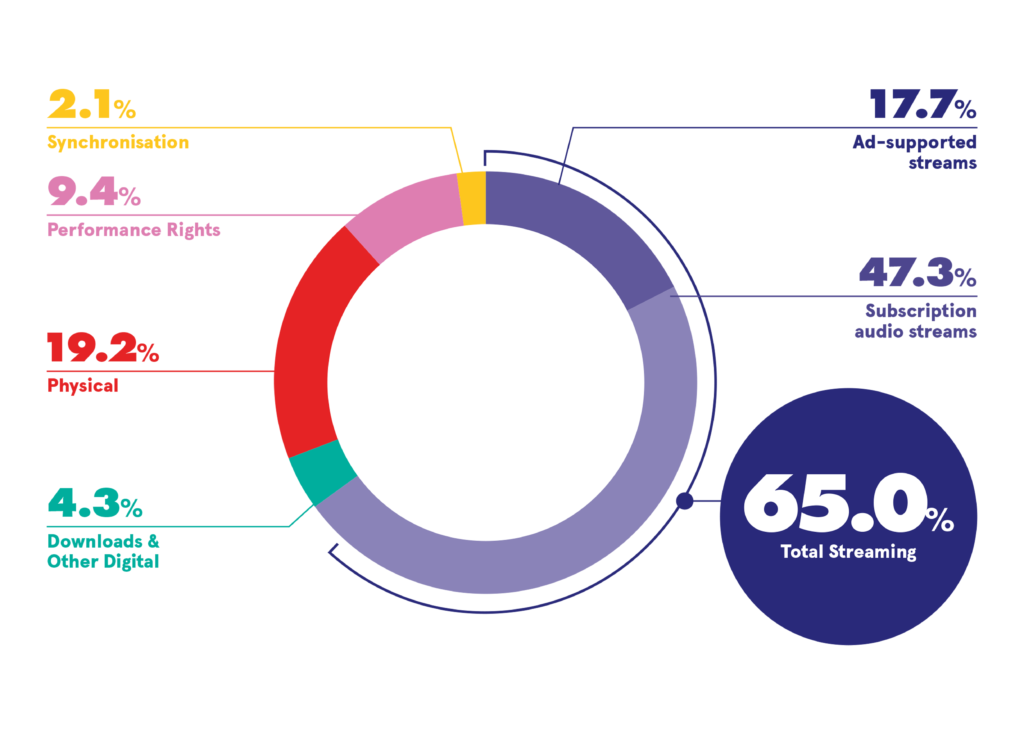
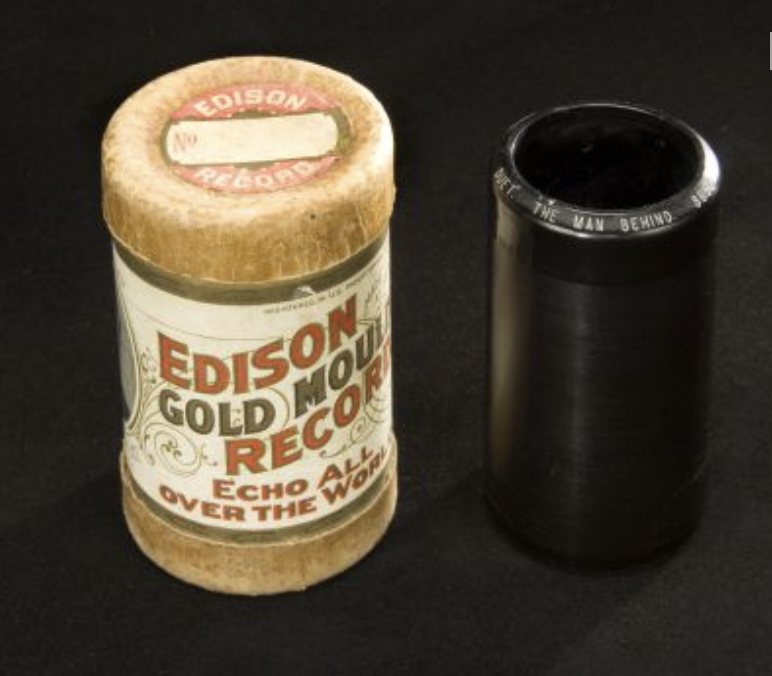
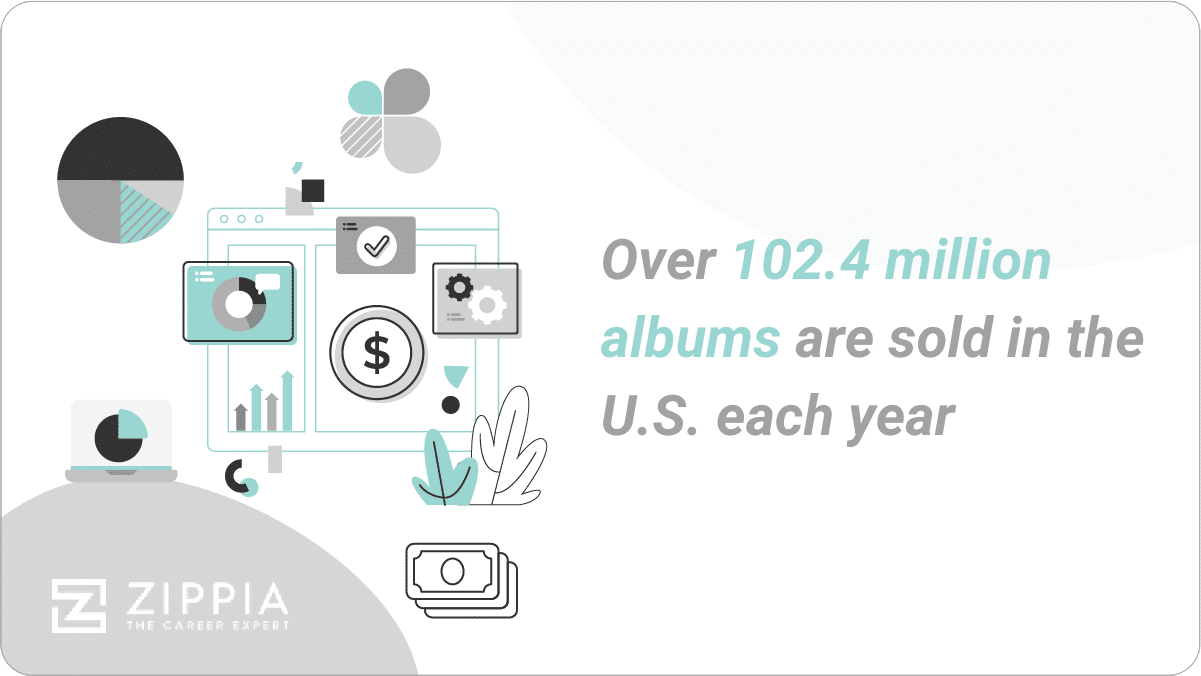
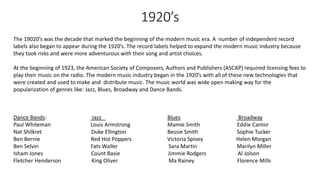

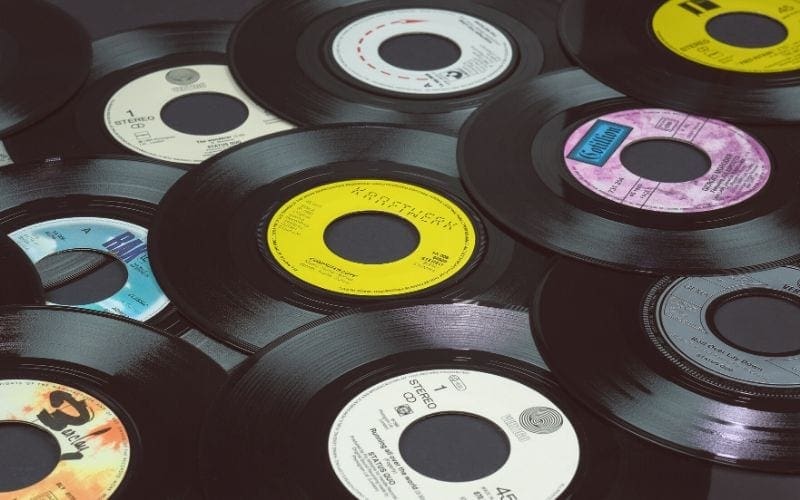

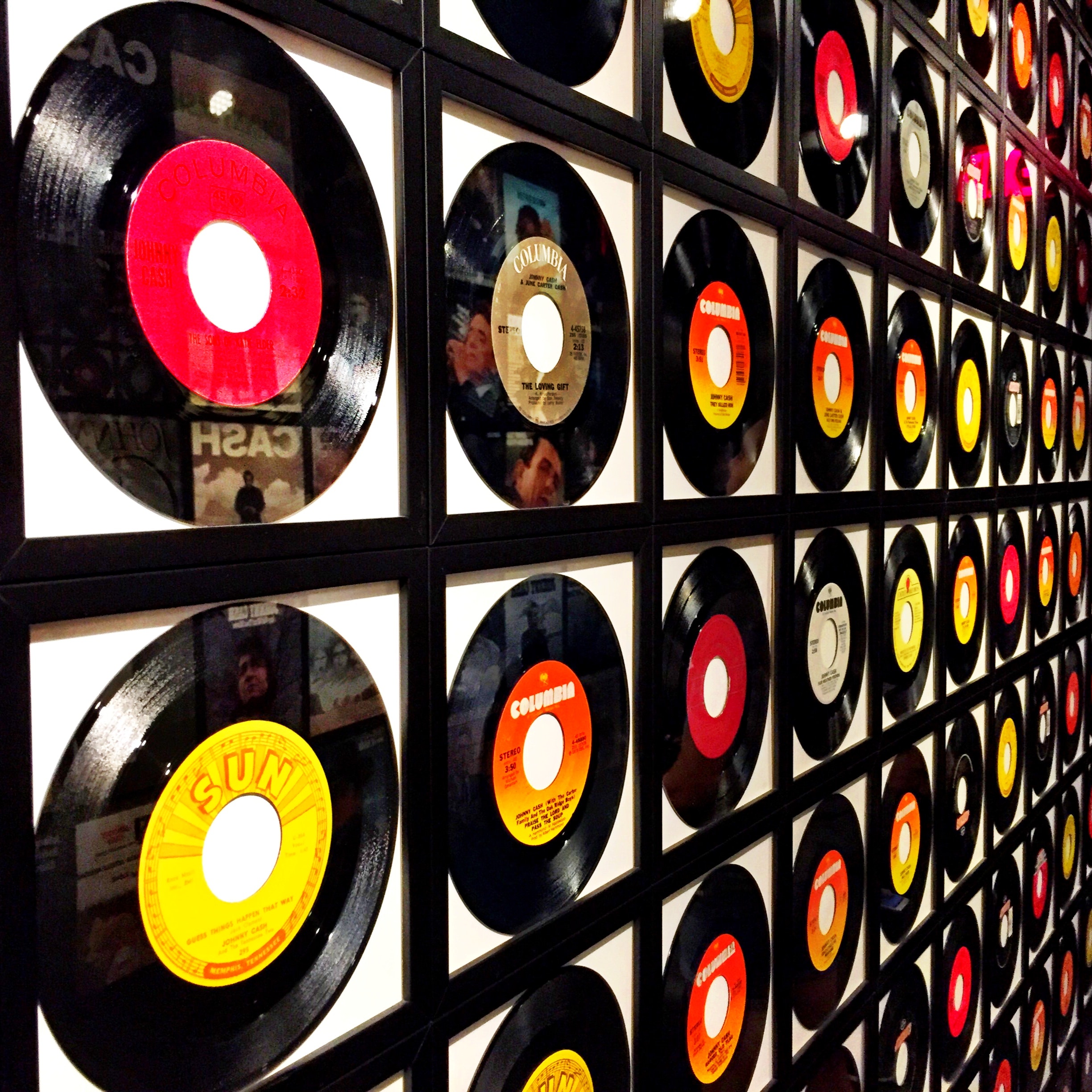
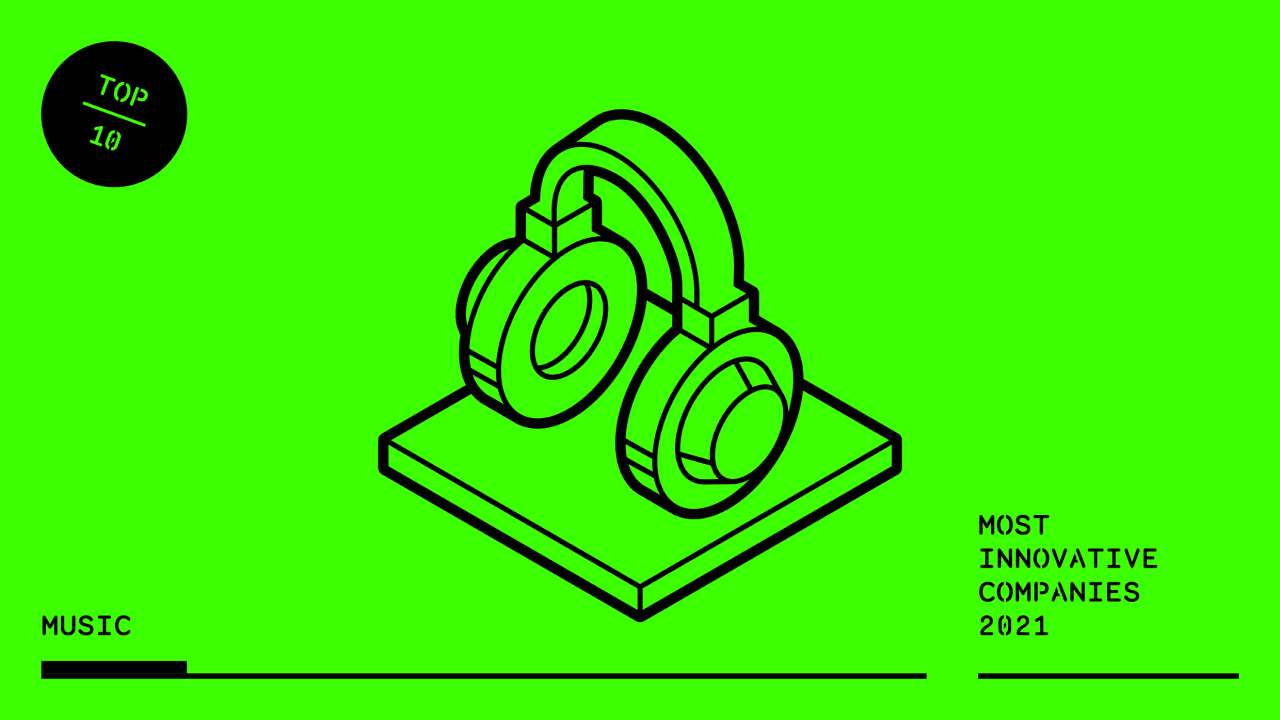
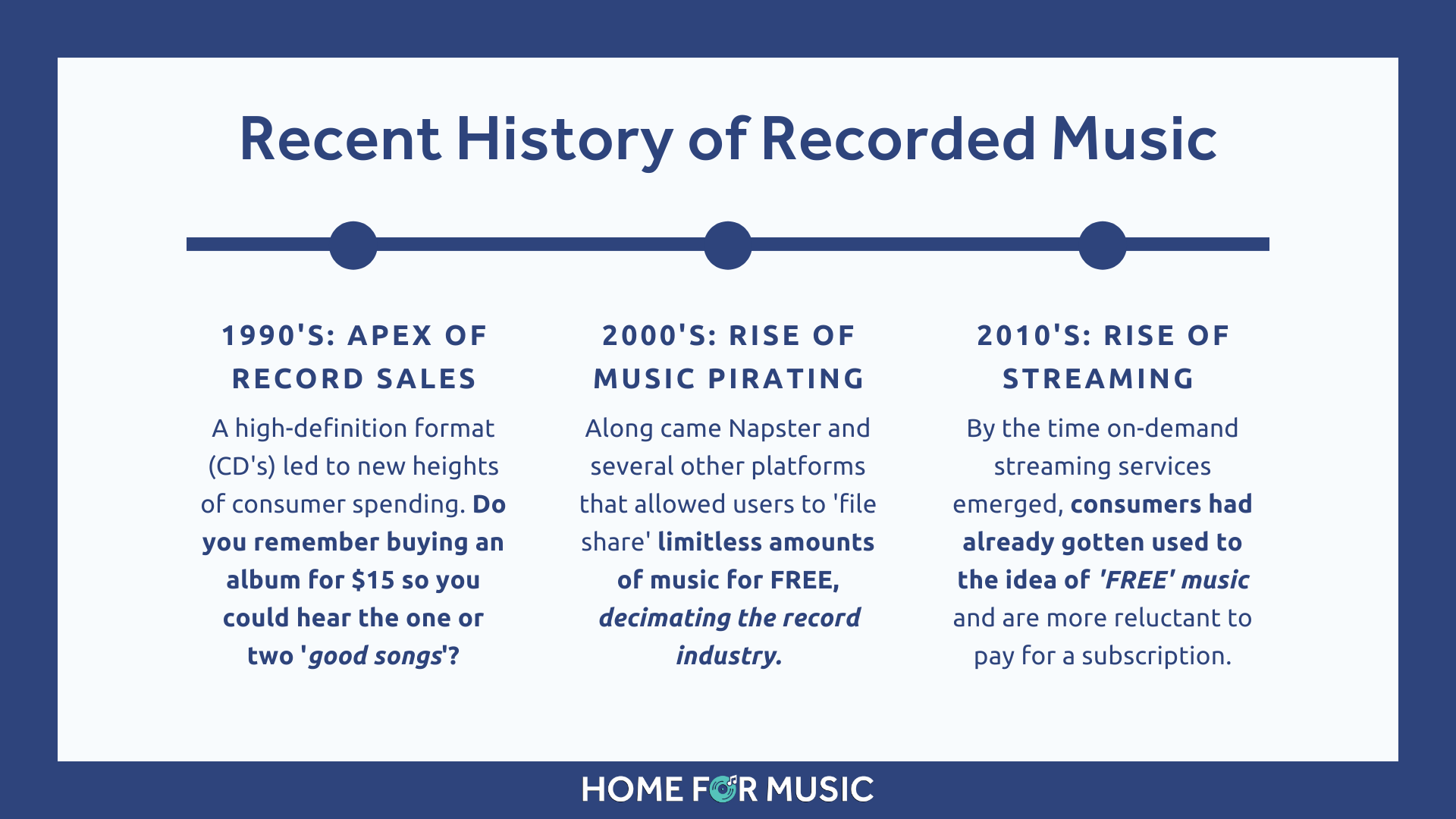






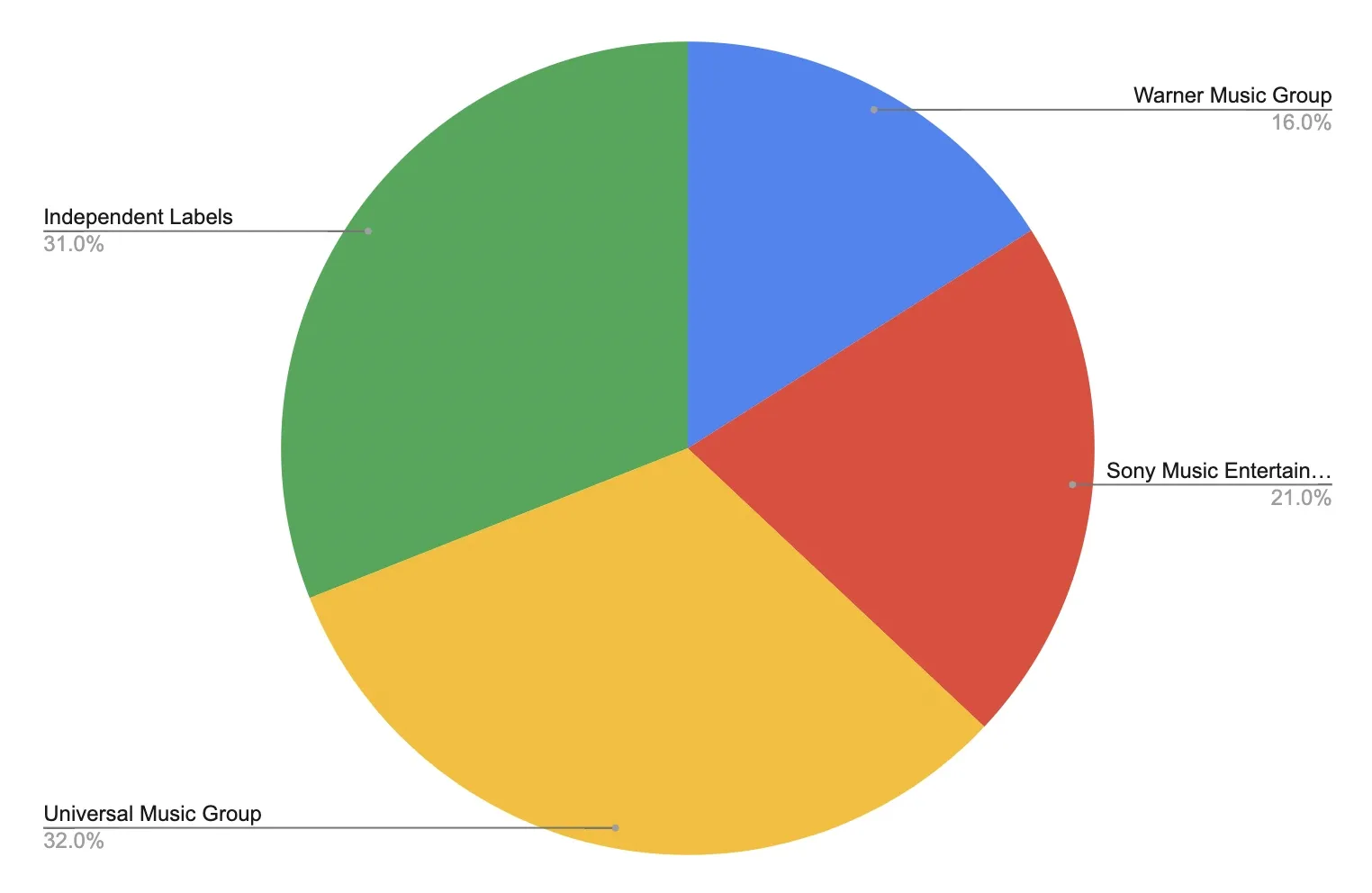



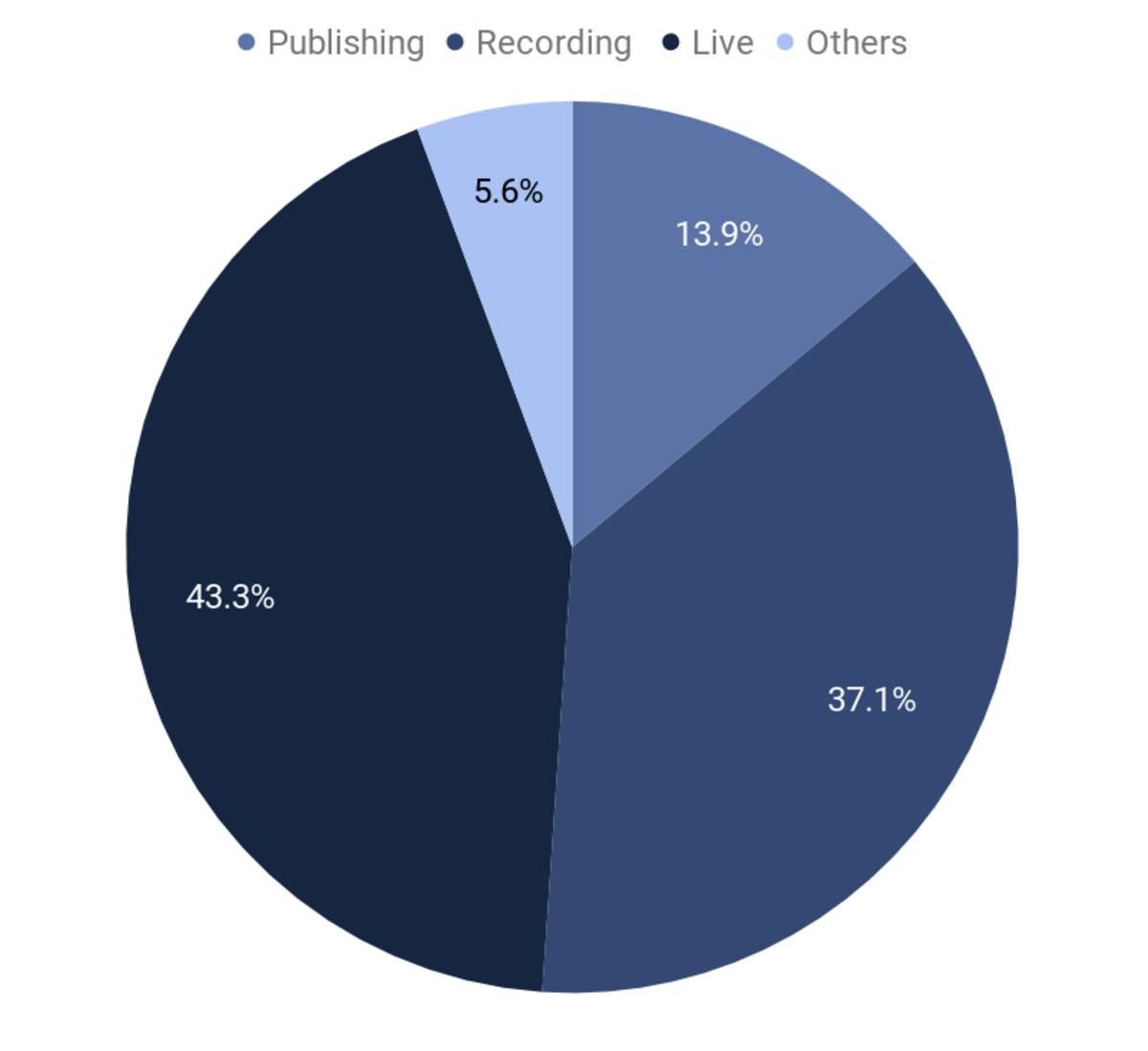
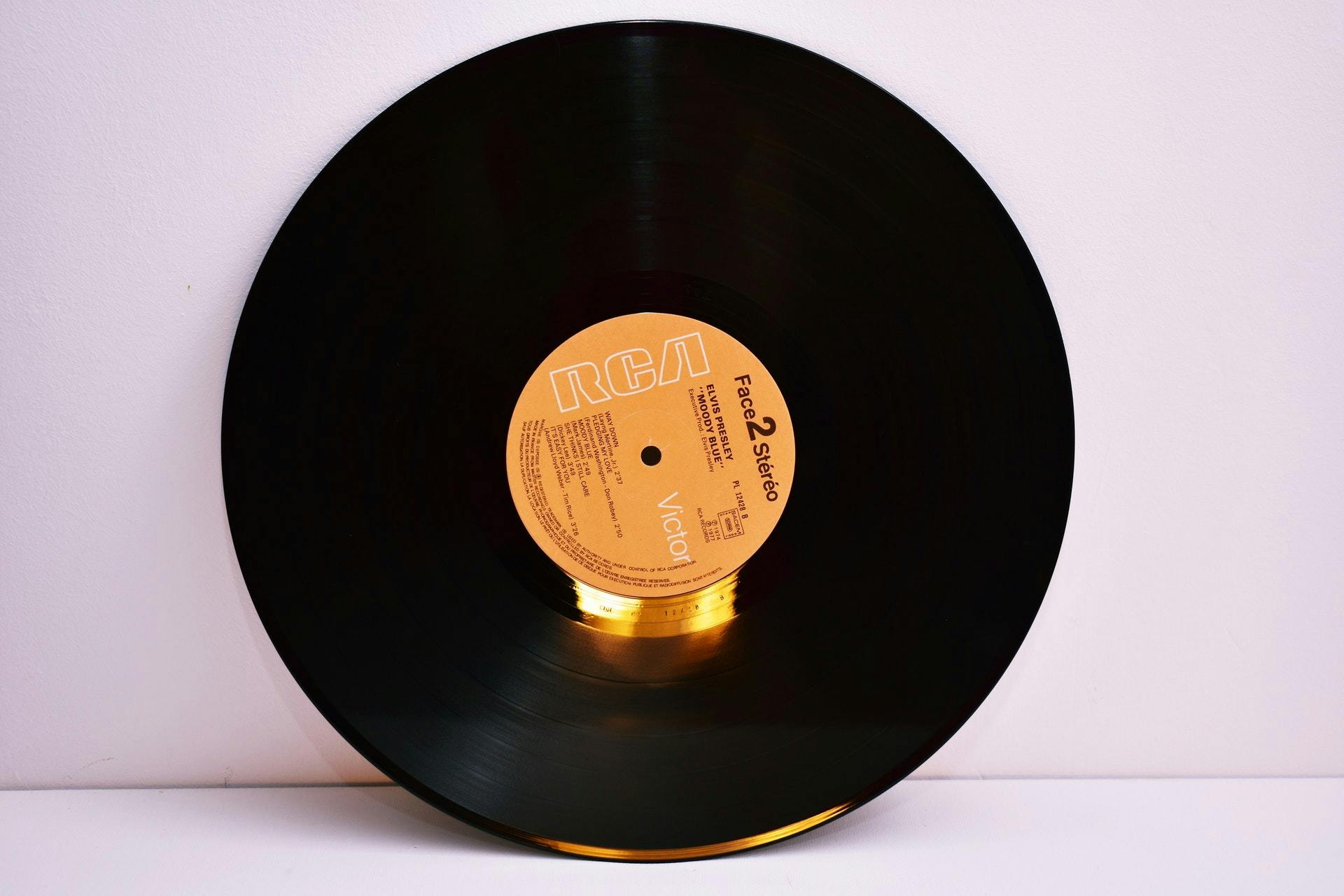
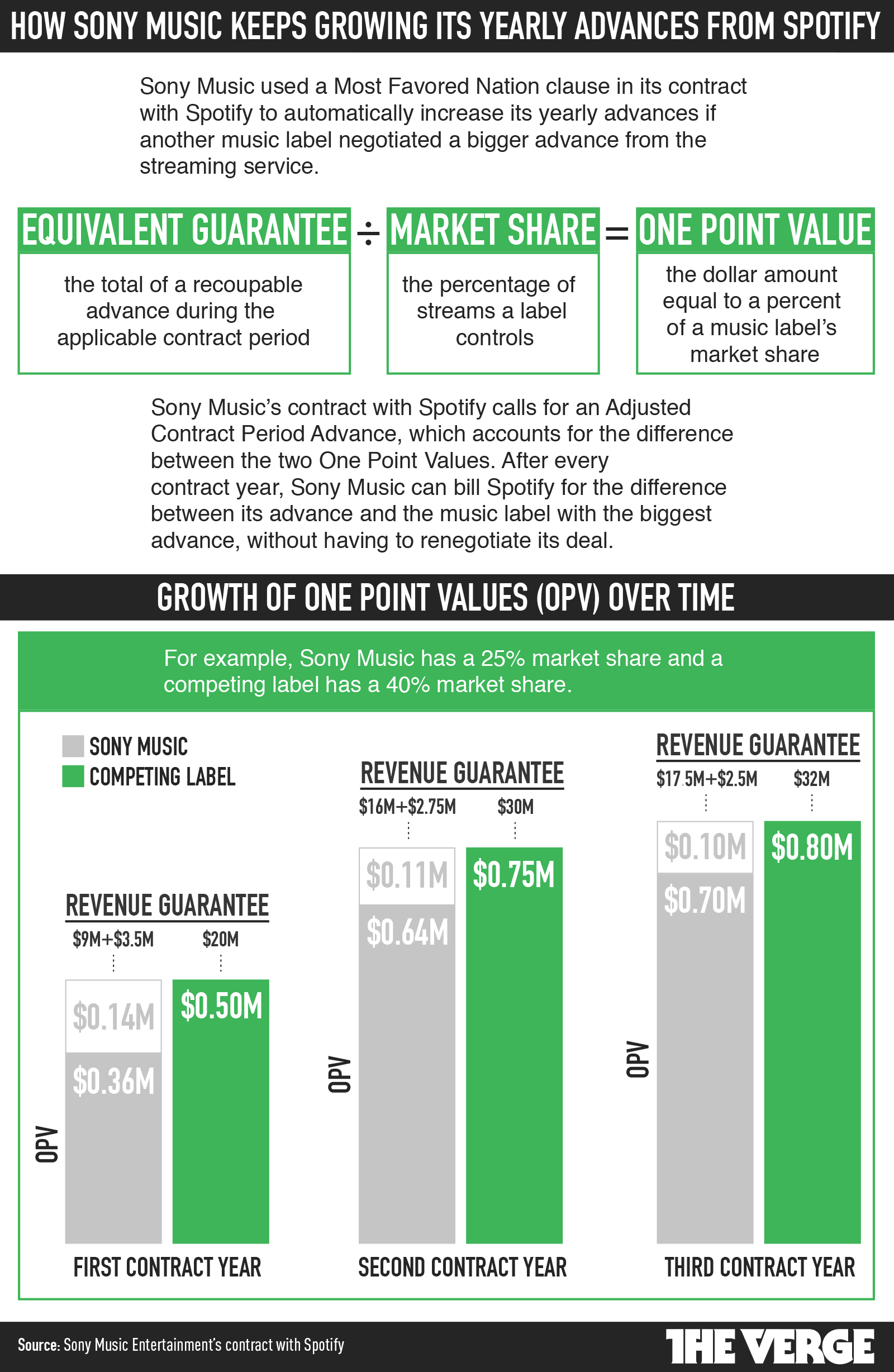
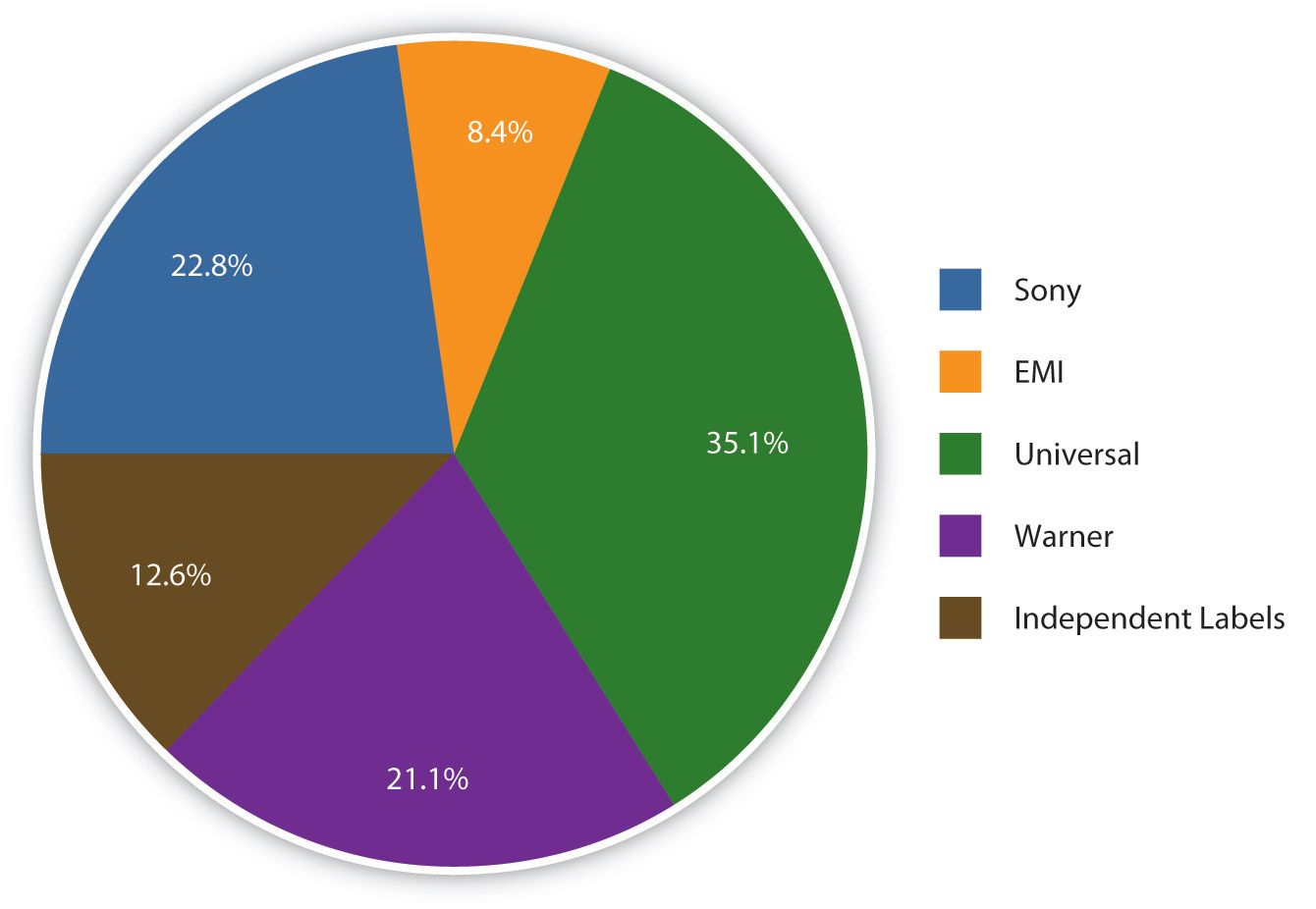


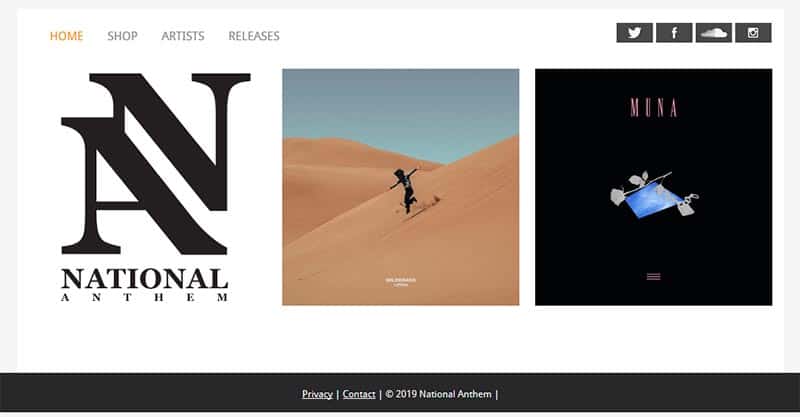

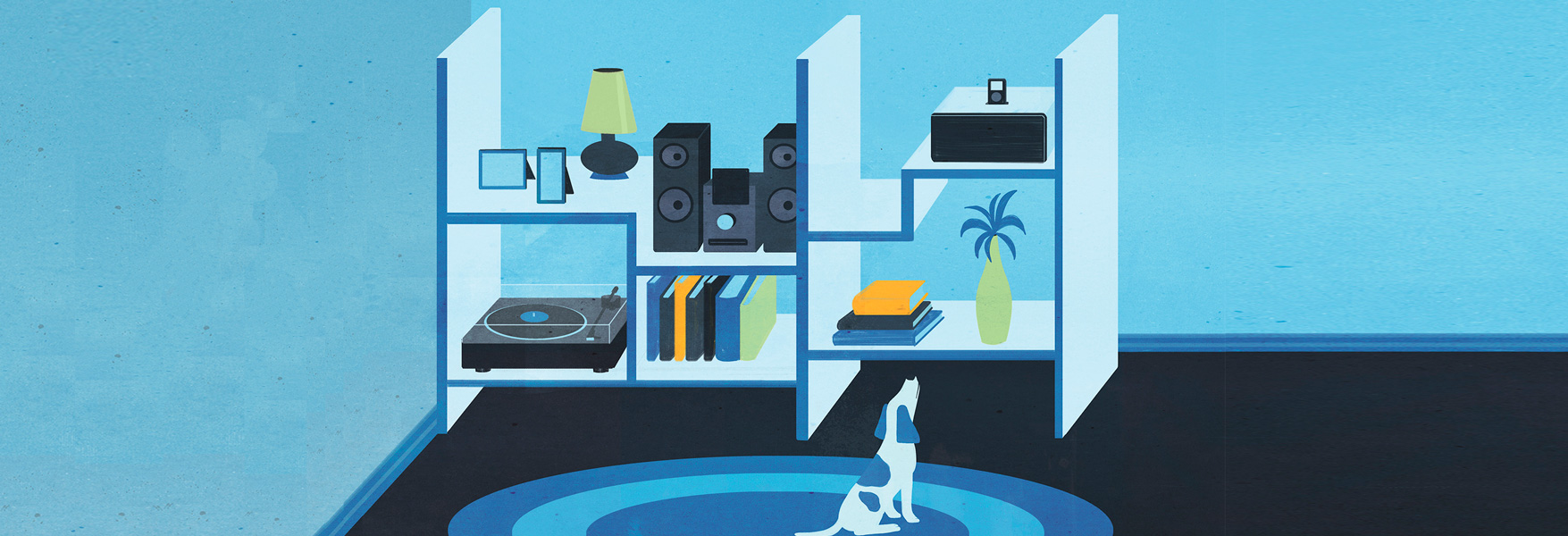

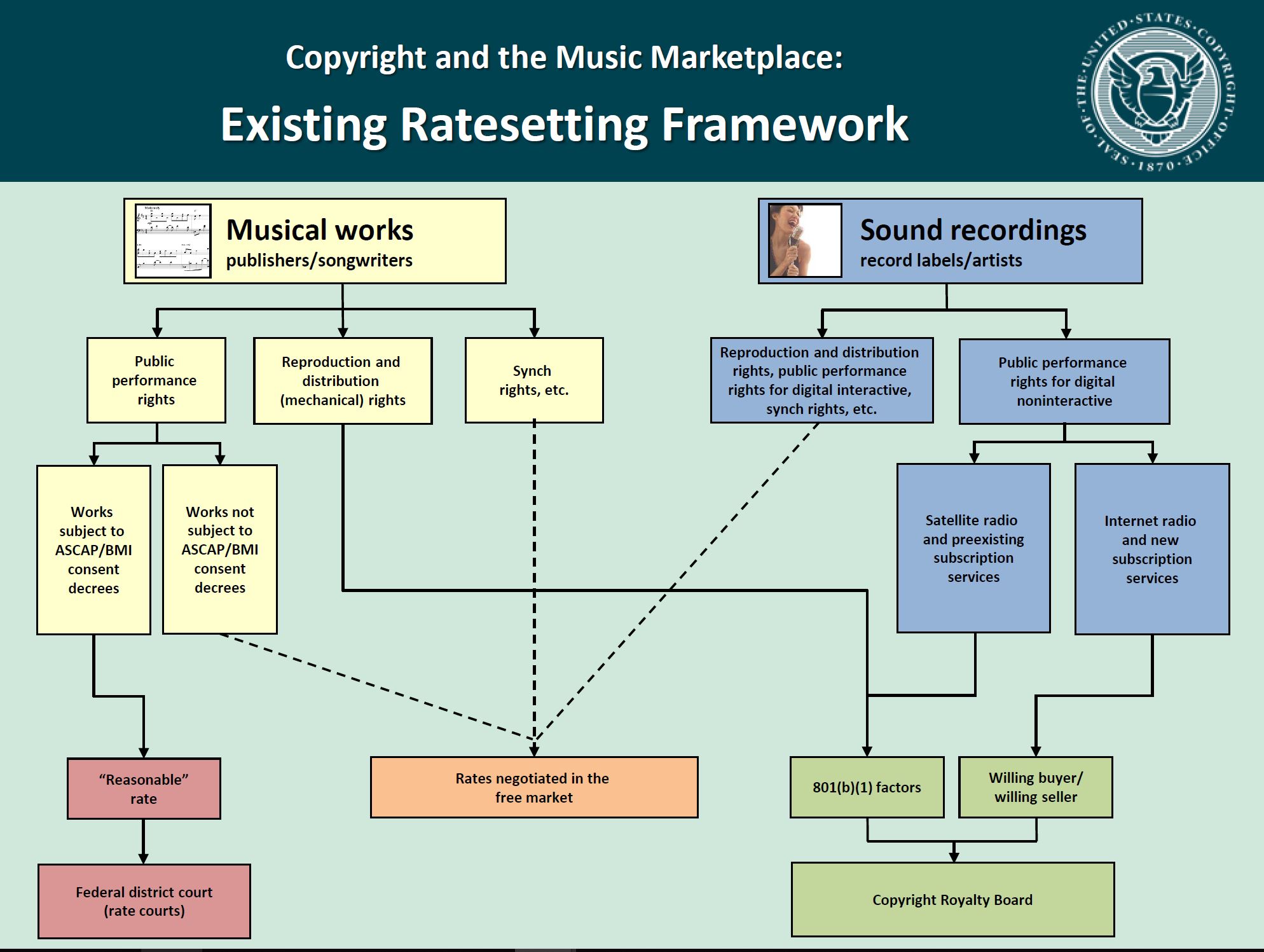


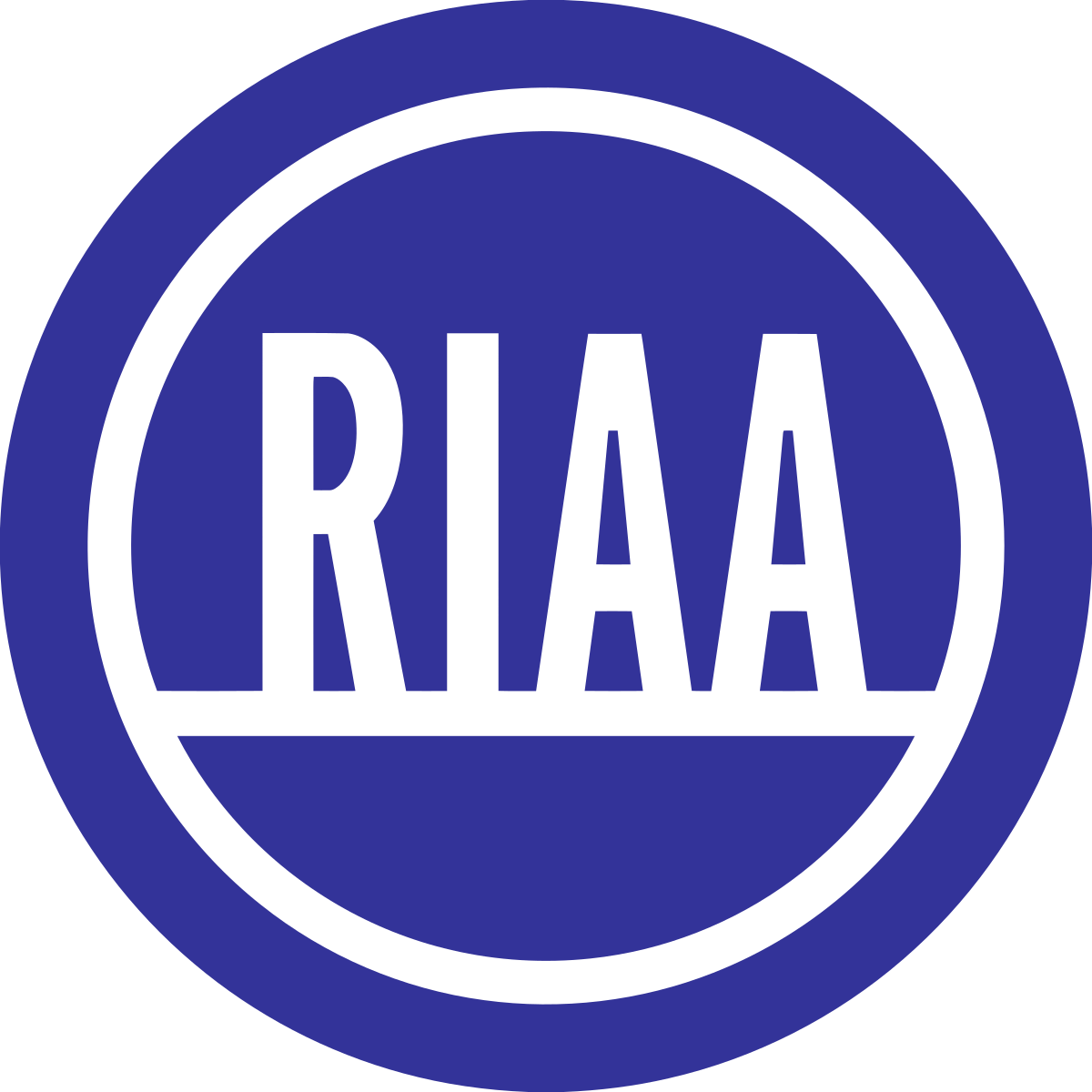

Very Nice Excelent and Informative. Must Visit Here. annual compliance SEBI (Issue and Listing of Debt Securities), 2008. Must Read it.
ReplyDelete